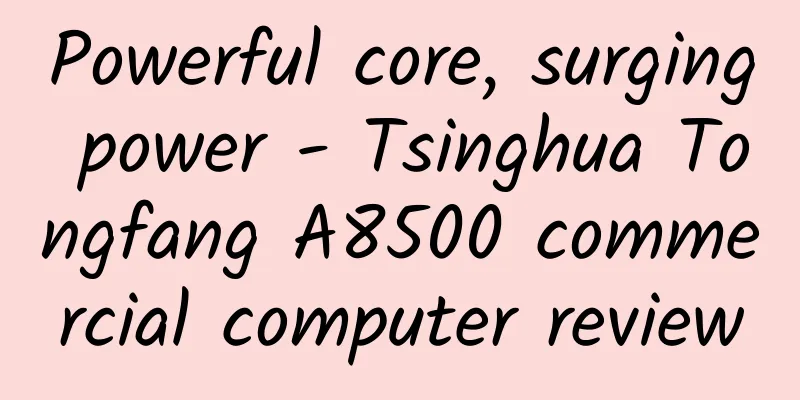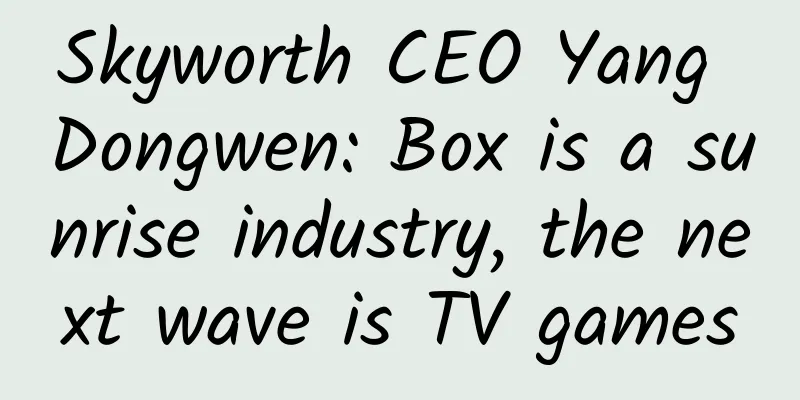Shared power bank battle royale: 7 companies exit, more struggling on the brink of funding shortage

|
For many sharing entrepreneurs, the winter of 2017 has arrived early. In September, first Coolqi Bicycle was exposed to many negative news such as difficulty in refunding deposits and the dismissal of its CEO. Later, the shared power bank company HI Electric was exposed to personnel scandals such as malicious layoffs and failure to pay social security. On October 11, Ledian, a shared power bank company from Hangzhou, announced on its official account that it would cease operations. As the first company in the industry to publicly announce its suspension, Ledian's move was seen by many media as a signal that the industry was facing a reshuffle. In fact, according to Jiemian Venture, Ledian is not the first company in the industry to leave the market. According to insiders, including Ledian, Xiaobao Charging, Paopao Charging, Chuangdian, Fang, PP Charging, and Hippo Charging have all reached the project liquidation stage. Among them, Hippo Charging also received a round of angel round investment of tens of millions of yuan led by Meihua Angel in April this year. As for the reason for withdrawal, the above-mentioned person introduced that it was mainly because small and medium-sized enterprises were unable to adapt to the rapidly changing market trends in the hot industries and could only blindly follow the trend, which eventually led to a decline in conversion rate. The unsatisfactory data also affected subsequent financing, resulting in a lack of funds, and they had to leave the market sadly. Companies "killed" by the trend At the end of 2016, Wu Shichun, the founding partner of Meihua Angel, met Wang Run who was working on a new project called “Hippo Charging”. Wang Run was previously the founder of the massage O2O brand "Kung Fu Bear". In 2015, with the decline of O2O, Kung Fu Bear's business was also suspended. Although Wang Run managed to save the company by selling shares at a discount, the model was verified to be wrong and it was meaningless to continue. Therefore, at the end of 2016, the team launched a new project - Hippo Charging. At that time, angel investors in the industry were more or less heartbroken for missing out on shared bikes, and Wu Shichun was no exception. But it was too late to regret, and the important thing was to hit the next wave. Wu Shichun has always been optimistic about the consumer sector. In his opinion, if a unicorn can emerge in this sector, it must be a business model that uses mobile payment to complete delivery at a lower cost and with higher efficiency. Wang Run's Hippo Charging happened to be partly consistent with the business model that Wu Shichun had in mind at the time. So, as everyone knows, Hippo Charging successfully obtained an angel round of financing of tens of millions of yuan led by Meihua Angel. However, four months later, when the shared power bank industry was at the center of controversy because of a bet between Chen Ou and Wang Sicong, Wu Shichun took the initiative to find Wang Run and persuade him to change direction. Why give up on a popular project? "This is originally a small market, and its capacity is much smaller than that of the bicycle market. When I decided to invest, it was not a hot spot. But in April, a large amount of pent-up financing news broke out at once, and with the media's hype, a large number of startups suddenly poured in, and businesses began to charge high entry fees. A business with low gross profit margins became unprofitable. This project has lost its original investment value." Wu Shichun told Interface Startup. More importantly, under the influence of capital, the war will never end easily, the competition will only become more and more fierce, and the hidden costs of winning the war will also increase. With the mentality of stopping losses in time, Wu Shichun began to persuade Wang Run to liquidate the project. He called it "paying for cognition" and said, "When investing, you must be brave enough to enter the market, and you must also be brave enough to leave the market quickly after discovering problems." Looking back at the industry today, Wu Shichun still has a negative attitude: "Even if entrepreneurs don't rush in, this kind of hardware is difficult to upgrade and has poor flexibility. Overall, it is a poor business model." Not only Wu Shichun, but also small investor Zhu Xiaohu, the sharing economy is not as imaginative as it used to be. At an event in October, he even told everyone bluntly: "At present, the trend this year has shifted to new retail. Everyone is talking about new retail, and no one is talking about sharing." According to industry insiders, a new retail company jointly invested by Zhu Xiaohu and Wang Gang will soon surface. It is rumored that this is a company that opens convenience stores in Didi Express cars. Obviously, Zhu Xiaohu has begun to build momentum for the project, and his attitude is very telling. Since the second half of this year, the change in the wind direction of the capital market has been obvious - new retail and unattended equipment have replaced the sharing economy to become the new favorites of investors. This reminds me of what Yin Ming, partner of Blue Lake Capital, wrote in an article in the first half of this year: "What else can we invest in recently besides power banks and artificial intelligence? This is the question I have been asked most often by my peers in the past six months. This is probably the most anxious time in the history of Chinese TMT venture capital." Now it seems that such anxiety has not passed. Capital is still gathering and the artificial trend is still continuing. In the past, people always said that the success of shared power banks at the capital level depended on the education of investors by shared bicycles. However, after a period of model verification, most investors realized that these were two completely different business models. First of all, from the perspective of demand, travel is a high-frequency rigid demand, but charging mobile phones outdoors is an emergency demand. It is undeniable that this demand does exist, but it cannot support the influx of more than a dozen companies. Secondly, power banks need to go through one more B-end channel to reach users than shared bikes, and most players in the industry have rich O2O experience. Path dependence will make them unconsciously copy their previous usual strategies. In the past few months, the industry has seen a large number of practices of giving merchants a share or entry fee, which has greatly damaged the financial model and competitive environment of the entire industry. Finally, the frequency of use and visibility of shared power banks are not comparable to those of shared bicycles. Just think about it, a dozen bicycles placed at the subway entrance will have a completely different effect than a dozen power banks placed on the tables of restaurants. This shows that it is much more difficult for power banks to educate the market and stimulate user demand through large-scale deployment than for bicycles. Even blindly pursuing scale can sometimes have the opposite effect. According to what Jiemian Venture learned from Xiaodian BD, a 40-square-meter store can meet all needs by placing 2-4 desktop power banks. More will cause waste and reduce the order volume. This also shows that shared power banks cannot adopt the strategy of concentrated regional saturation like bicycles. In fact, for power banks, the more saturated a single area is, the worse the data performance will be. However, the story that investors want to hear is about scale. As a result, a large number of companies began to blindly lay out outlets regardless of the traffic volume of the outlets. Transportation hubs, airports, hospitals, scenic spots, commercial complexes, large government agencies, bars, KTV, bathing, foot massage, cafes, cinemas, western food, hot pot, and chain restaurants. For shared power banks, these are almost all the profitable locations, but there are only a limited number of high-quality locations. If you want to expand quickly, you have no choice. If you want to expand widely, you will definitely expand to some locations with poor traffic. In the end, as Wu Shichun said, "The financial model is completely different from what was said at the beginning." According to Phoenix Technology, the funding problems HI Electric encountered before were also due to its rapid expansion and data not meeting the standards, resulting in the funds agreed with investors not being received. A former BD of HI Electric, Mr. Shen, also confirmed this statement with the reporter. According to Mr. Shen, "In the early days, HI Electric simply evaluated the number of merchants and the number of devices. It was not until July that it changed to look at the equipment utilization rate and order volume. After that, we slowly withdrew most of the stores with poor conversion rates." But presumably the rectification time was too short and the data failed to meet investors' expectations, otherwise there would not have been the fancy layoffs in mid-August. Therefore, the trend is only a game for a few people. For most entrepreneurs who go against the trend, you have to face not only countless opponents, but also unpredictable situations. Most importantly, the patience and time the market gives you to verify your business model have been extremely compressed, which may be three months at the fastest or a year at the slowest. If you take a wrong step, you will lose everything. With such a low tolerance rate, the trend can make you or kill you. From the Hundred Electric Wars to the Shikoku Rebellion Half a year ago, Yuan Bingsong, the founder of Lai, made a judgment in an interview with Chinese entrepreneurs, "The war will wash out a group of companies first, and then the remaining few will fight. It is a process from the 'Hundred Electric Wars' to the 'Seven Kingdoms Rebellion' and then to the Three Kingdoms War. This is not a blitzkrieg, but a protracted war, and the competition is about capital, resources, product operations and user experience." Although this humble entrepreneur is an outsider in the Internet industry, his judgment on the business war is correct. Today, the situation is just as he said. The first reshuffle has begun, and a large number of second- and third-tier players have fallen behind. Only four companies are still at the forefront: Laidian, Jiedian, Xiaodian and Monster Charging. The market has gradually evolved from a war of hundreds of electric companies to a chaos of four countries. The latest data shows that by the end of August, Jiedian had deployed 350,000 cabinets in 130 cities, with 3.44 million power banks and an average daily order of about 200,000. Xiaodian covers 70 cities across the country, with an average daily order of about 240,000 in August. Although Monster Charging has not disclosed its data, people familiar with the matter revealed that it also carried out a round of aggressive expansion in July, and its market share in Shanghai, Beijing, Chengdu and other places has now surpassed Xiaodian. Due to the high cost of large cabinets, Lai Dian has never had an advantage in the number of locations, but since it focuses on large scenarios, there is currently no other player who can penetrate into the large scenarios and compete head-on with Lai Dian. Judging from the data alone, no company has truly left its competitors behind, but what is interesting is that in recent months, there has been a tendency for Jiedian to be besieged by the crowd. The first to ignite the war was the incoming phone call. As a more experienced player in the industry, Lai Dian has previously applied for a total of 32 patents related to shared power banks, most of which are related to solutions for absorption-type automatic rental equipment and mobile power rental. On May 17, June 6, June 27 and July 12, Lai Dian filed a series of cases in Beijing and Shenzhen accusing Jiedian of patent infringement. Jiedian was not completely unprepared. As early as May, Chen Ou had already spent a huge amount of money to purchase the patents related to shared power banks under the name of Liu Tongxin. This time, as a counterattack, Jiedian also took Laidian to court, and also applied to the "State Intellectual Property Office" to initiate an invalidation review of Lai's six patents. At present, the case has not yet been sentenced, but the two sides are already in a tense state. Xiaodian has also been busy. In theory, there seems to be no direct conflict between Xiaodian's main desktop devices and Jiedian's small cabinets, but in fact, the two companies, which both focus on small scenes, have reached the stage of same-store competition. In addition, Xiaodian's new mobile equipment has also been successfully developed and gradually deployed. Recently, Xiaodian also announced that it will recruit service providers on a large scale for mobile devices in key cities across the country. Previously, only Jiedian had adopted a service provider policy among all the companies. The service provider policy is the market expansion strategy launched by Jiedian in May. Specifically, the self-operated team is responsible for developing key channels, while the service providers are responsible for developing long-tail channels. The settlement consists of a one-time bonus for laying out and a share of the revenue from the subsequent service providers' participation in operation and maintenance. According to Jiemian Venture and Jiedian BD, Jiedian currently divides the outlets into three levels, and after the different levels of stores are negotiated, they will give the service providers a commission ranging from 30 to 100. In this large-scale investment promotion, Xiaodian offers twice the price of Jiedian to high-quality service providers. The bayonet has been extended, just waiting to see blood. What’s worse is that the problems facing Jiedian are not only from external sources. On September 29, Jiedian’s former parent company Haiyi Holdings sold its 15.236% stake in Jiedian and transferred it to Tianjin Shunshitongda Technology Co., Ltd. for RMB 48 million. After this sell-off, Haiyi is now a company completely unrelated to Jiedian, and it is unclear whether it will continue to support Jiedian in the supply chain in the future. In other words, Jiedian is going to fight alone this time. According to an insider close to the industry, the reason why Jiedian was besieged by everyone was that, in addition to being too high-profile and wealthy, Jiedian's small cabinets posed a direct competition to both large and small scene players. In addition, its vigorous expansion since May also made its competitors wary. In the past few months, Jiedian has deployed 350,000 cabinets with the help of service provider policies. Yuan Bingsong had previously estimated that shared power banks can cover only about 6 million merchants, and Jiedian has occupied 6% of them in just a few months. In terms of cities, Jiedian currently covers 130 cities, accounting for nearly half of all prefecture-level cities in China. I feel this particularly clearly. During the National Day holiday, I saw no less than 10 Jiedian cabinets in shopping malls in western cities such as Lanzhou and Xining. Friends have also seen Jiedian in Yanqing, Shidu and other remote suburbs of Beijing. According to my observation, most businesses will place Jiedian at the bar counter where you can see it as soon as you enter the door, and the size and appearance of Jiedian itself are also very eye-catching (compared to desktop devices). In other words, with both quantity and eye-catchingness, Jiedian may soon occupy a high ground in the minds of users and achieve Chen Ou's goal of "when talking about shared power banks, Jiedian is the first thing to think of." This is not what other players want to see, especially Xiaodian. In fact, judging from the average daily order volume and the performance of the mini program, Xiaodian's data is a little higher than Jiedian. According to Xiaodian CEO Tang Yongbo, from the beginning, Xiaodian insisted on using device conversion rate (single-day order volume/total number of devices) as the KPI assessment standard for employees. This is also the reason why Xiaodian can outperform Jiedian in data even though its density is not as high as Jiedian. But Xiaodian also has its own anxieties. After all, the goal blueprint proposed by the desktop series to occupy every dining table in China and the imagination space built on this blueprint have been proven to be difficult to achieve. The only advantage of the desktop series is low cost. However, according to what HI Electric BD and Xiaodian agents have reported to Interface Startup, desktop devices have a high damage rate despite their low costs. In most cases, they need to be charged once a day, which places high operating and maintenance costs on merchants. This has already been met with resistance from some merchants. Yuan Bingsong even believes that desktop charging products may be eliminated at the end of the battle. "Although we have also made desktop devices, I have to say that this is a defensive measure. Overall, this product form still has major technical problems, including using merchant WiFi and charging at merchants, which is not applicable to many scenarios." At present, Xiaodian has also launched a bread maker-style mobile cabinet, and large cabinets for large scenes are also under development. According to an internal employee of Xiaodian, the bread machine equipment of Xiaodian is currently limited in quantity due to its high cost. "But we will definitely focus on (mobile devices) before the end of the year, because our goal is to achieve a maximum daily order of over 1 million by the end of the year. In order to achieve this goal, we will have to compete with Monster and Jiedian." As for desktop equipment, the employee commented: "At least at this stage, the revenue capacity of desktop equipment is still good." Where is the end? In general, the fierce competition in the first phase has quickly eliminated a group of second- and third-tier players who followed the trend. Next, the war among the top players will quickly develop from blindly running to close combat. Andy, a service provider of Jiedian in Beijing, told Jiedian Startup that Jiedian is now gradually withdrawing its service providers in Beijing and saturation is imminent. For the remaining players, competing for more high-quality locations and continuously expanding market boundaries on the existing basis will become the focus of competition for a long time to come. Now that first- and second-tier cities have basically been covered, the next step for shared power banks to expand their boundaries may be to follow the old path of shared bicycles and enter overseas markets. Not long ago, Lai Dian has begun to test the waters overseas in disguise by cooperating with tourism companies. Since domestic competition cannot come to an end in the short term, expanding overseas may not be a bad idea. After all, in the absence of competition, the financial model of shared power banks is still valid, and practitioners only need to consider how to solve the payment problem. But for those second- and third-tier players who are still struggling with financial difficulties, it is more realistic to think about when to cut losses rather than how to expand. As a winner of Toutiao's Qingyun Plan and Baijiahao's Bai+ Plan, the 2019 Baidu Digital Author of the Year, the Baijiahao's Most Popular Author in the Technology Field, the 2019 Sogou Technology and Culture Author, and the 2021 Baijiahao Quarterly Influential Creator, he has won many awards, including the 2013 Sohu Best Industry Media Person, the 2015 China New Media Entrepreneurship Competition Beijing Third Place, the 2015 Guangmang Experience Award, the 2015 China New Media Entrepreneurship Competition Finals Third Place, and the 2018 Baidu Dynamic Annual Powerful Celebrity. |
Recommend
Detailed introduction to activity operation (I): Preliminary preparation for the activity
In the next few articles, I will introduce to you...
Solution for Android alarm setting
Setting an alarm on Android is not as simple as s...
Overview of three excellent open source Python GUI frameworks
Today, most programmers are ready to break away f...
Samsung Note Edge hands-on experience: the side screen is the highlight
Samsung Galaxy Note Edge is undoubtedly the highl...
Product Marketing Promotion | How to create sparks between marketing and products?
Every product needs marketing, no matter in the i...
Don't use these "anti-radiation" products indiscriminately! Remember these 6 tips to stay away from radiation in your life!
Recently, topics such as nuclear radiation and ra...
Android market cannot wait for a hot small-screen phone
This new iPhone SE may become Apple's best-se...
SaaS product promotion and customer acquisition guide!
SaaS service companies cannot just provide softwa...
Will a new round of Internet bubble come ten years later?
Alibaba 's initial public offering (IPO) will...
Tmall Genie CCL vs. Xiaodu at Home 1S, which smart speaker with screen is better?
In the past two years, as Chinese companies and c...
Learn store sales from Shao Huining and get results from details
Learn store sales from Shao Huining and get resul...
Samsung S8+ battery life test: completely beaten by iPhone 7 Plus
Nowadays, battery life has become the biggest pai...
What happened to the United States canceling its global travel warning? What do you think about the United States canceling its global travel warning?
According to the U.S. State Department’s homepage...
Are you afraid of picking bones when eating fish? Eating "boneless fish" may soon become a reality
Are you still worried about fish bones stuck in y...
Apple Watch long-term test report: Usage scenarios are limited
I am usually willing to try out new products laun...









